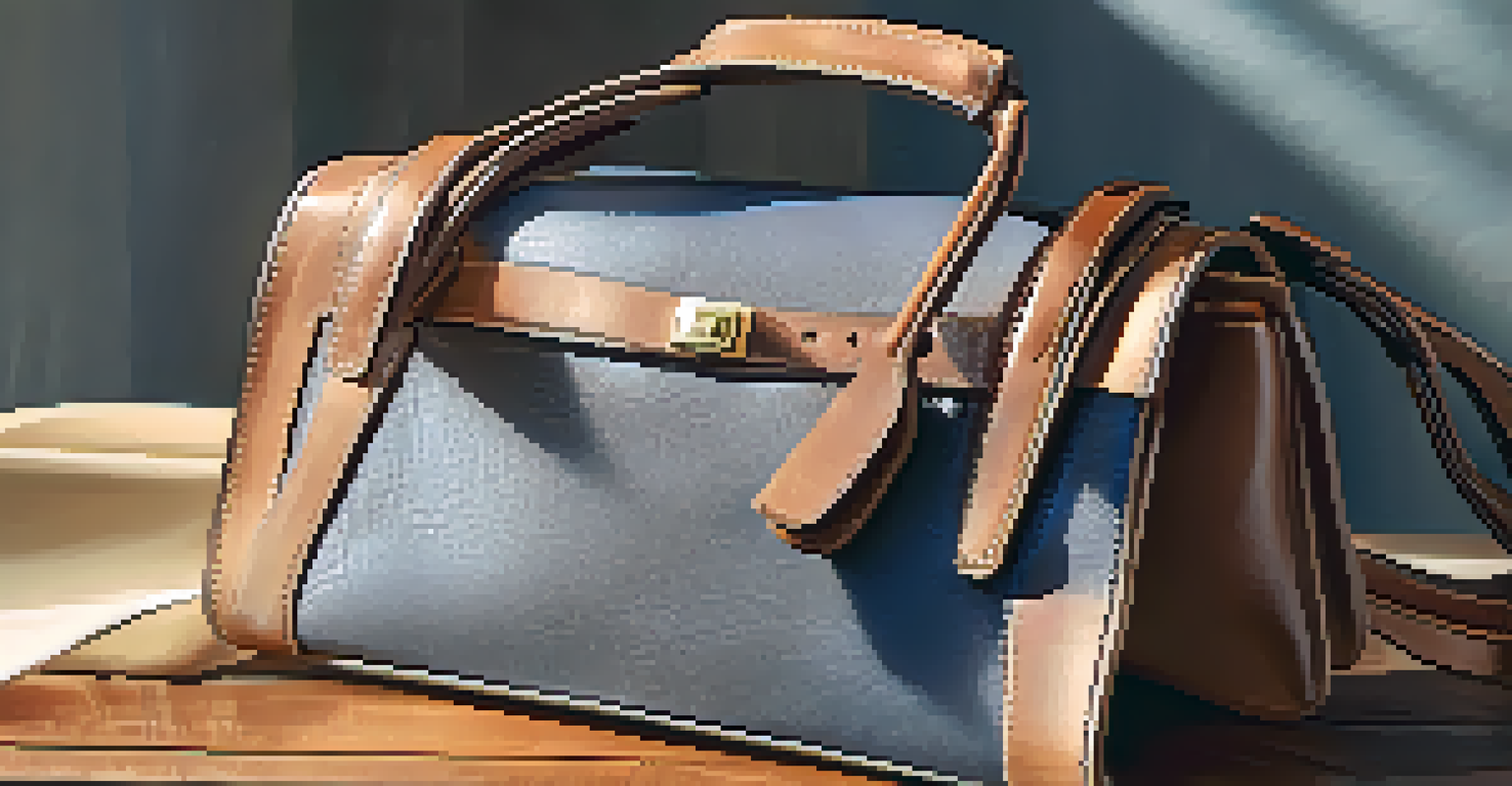Understanding Fashion Consumer Rights: A Comprehensive Guide

What Are Fashion Consumer Rights and Why They Matter
Fashion consumer rights refer to the legal protections that shoppers have when purchasing clothing and accessories. These rights ensure that consumers receive fair treatment, quality products, and truthful information. Understanding these rights is crucial because it empowers you to make informed decisions and protects you from misleading practices.
In a consumer society, there are many things that we can buy, but the most important thing that we can buy is our rights.
For example, if you buy a dress advertised as '100% silk' but later discover it's a polyester blend, you have the right to seek a remedy. This might include a refund or exchange, depending on the situation. By knowing your rights, you can confidently advocate for yourself in the marketplace.
Moreover, consumer rights vary by country, so it’s essential to familiarize yourself with local regulations. Whether you're shopping online or in-store, being aware of these protections can enhance your shopping experience and ensure you’re treated fairly.
Key Consumer Rights When Shopping for Fashion Products
When shopping for fashion products, there are several key rights you should be aware of. These include the right to receive goods that match their description, the right to a refund or exchange for faulty items, and the right to clear information about pricing. Each of these rights is designed to protect you from unfair practices in the fashion industry.

For instance, if you purchase a pair of shoes that arrive damaged, you have the right to return them for a full refund. This basic principle ensures that consumers are not left with defective products. Additionally, if an item is advertised at a certain price, it must be honored at the checkout, providing transparency and fairness.
Know Your Fashion Consumer Rights
Understanding your rights empowers you to make informed purchasing decisions and advocate for yourself against misleading practices.
Furthermore, many countries have cooling-off periods for online purchases, allowing consumers to change their minds and return products within a specified timeframe. Being aware of these rights not only protects your wallet but also helps you shop with confidence.
Understanding Return Policies in Fashion Retail
Return policies are a critical aspect of fashion consumer rights, as they dictate how you can return or exchange items. While many retailers offer generous return windows, others may have stricter policies. It’s always wise to read the fine print before making a purchase, especially if you’re shopping online.
The greatest danger in times of turbulence is not the turbulence; it is to act with yesterday's logic.
For example, some brands may require items to be returned within 30 days, while others might allow for 60 days or more. Additionally, certain items like swimwear or lingerie often come with more stringent return policies due to hygiene reasons. Knowing these specifics can help you avoid surprises down the line.
It's also important to note that many retailers provide options for store credit rather than cash refunds. Understanding these nuances can significantly affect your shopping experience and help you make informed choices.
The Role of Quality Standards in Fashion Purchases
Quality standards play a vital role in fashion consumer rights, ensuring that products are made to a certain level of craftsmanship. These standards help protect consumers from low-quality items that do not meet basic expectations. When you purchase a fashion item, you have the right to expect it to be durable and functional.
For instance, if a handbag you bought falls apart after a few uses, you may be entitled to a refund or replacement. Fashion brands are held accountable for the quality of their products, and consumers have the right to demand better. This is particularly important in a market flooded with fast fashion, where quality can vary dramatically.
Importance of Return Policies
Familiarizing yourself with return policies helps you avoid surprises and ensures you can effectively resolve issues with purchases.
Additionally, regulatory bodies often set guidelines for materials and production processes, helping to ensure that products meet safety and quality benchmarks. Understanding these standards can help you choose brands that prioritize quality and ethical practices.
Consumer Rights When Shopping Online for Fashion
Shopping online has its own set of consumer rights that are crucial to understand. When you buy fashion items online, you should be protected by laws that ensure you receive the product as described and in good condition. If the item doesn't meet your expectations, you have the right to return it, often without any hassle.
For example, if you order a dress that looks stunning in the online photos but arrives in a completely different color, you can return it for a refund. Online retailers are also required to provide clear information about shipping costs, delivery times, and return policies upfront, so you can shop with transparency.
Moreover, many countries enforce regulations that protect consumers against fraud in e-commerce. This means that if a retailer fails to deliver your order or misrepresents a product, you have legal avenues to pursue a resolution, ensuring your rights are upheld even in the digital marketplace.
How to File a Complaint as a Fashion Consumer
If you encounter issues with a fashion purchase, knowing how to file a complaint is essential. The first step is often to contact the retailer directly. Most companies have customer service teams dedicated to resolving issues, so reaching out can lead to a quick resolution.
For example, if you received a faulty item, you would typically start by explaining the issue and requesting a refund or exchange. Be sure to keep records of your communications, as this can help support your case if the matter escalates.
Support Ethical Fashion Choices
Choosing ethical brands promotes responsible practices in the industry while ensuring your consumer rights are respected.
If you’re unable to resolve the issue directly with the retailer, you may need to escalate the complaint to consumer protection agencies. These organizations can provide guidance and support, ensuring that your rights are defended and that you receive the remedy you're entitled to.
The Importance of Ethical Fashion and Consumer Responsibility
Understanding fashion consumer rights also involves recognizing the importance of ethical fashion. As consumers, we have the power to influence the industry by choosing brands that prioritize ethical practices, such as fair labor and sustainable sourcing. This not only upholds our rights but also supports a more responsible fashion ecosystem.
For example, when you choose to buy from brands that provide transparency in their supply chains, you’re making a statement about the values you stand for. Ethical fashion encourages companies to improve their practices, which can lead to better products and a healthier planet.

Moreover, consumer responsibility goes hand in hand with understanding your rights. By being an informed shopper and supporting ethical brands, you help push the industry towards more sustainable practices while ensuring that your rights as a consumer are respected.